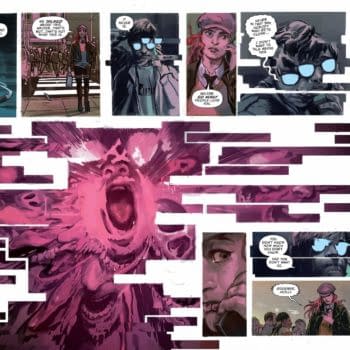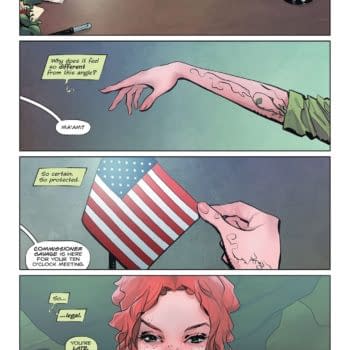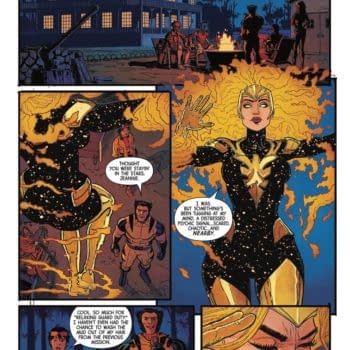Posted in: Comics | Tagged: Comics, dynamite, entertainment, Genevieve Valentine, greg land, Xena: warrior princess
Writer to Writer – Frank Barbiere Interviews Genevieve Valentine About Xena
Frank Barbiere, writer of Dejah Thoris #3, talks with writer Genevieve Valentine about Xena: Warrior Princess #1, both on sale now from Dynamite. Covers is by Greg Land and Jenny Frison.

GENEVIEVE VALENTINE: This question makes it sound like we used to be cop partners until a Case Went Wrong, and now I'm honestly kind of sad that's not what happened. What actually happened was that when I got to college, I had both unprecedented access to TV and downtime during the hours of the day in which reruns were airing. My chronological understanding of the show occasionally suffered weird skips, but I really loved watching this show that was totally unafraid to be goofy for 40 minutes and tragic in the final three, that was ready at the drop of a hat to make everyone slap on gold lamé and pull off a giant caper with their own secret twins, and also made its heroine face up to a ruthless past in a way that always felt very real. There are pockets in my memory (I couldn't tell you exactly what happened with Hope, and I'm fine with it), but I will always remember the hours of homework I ditched so I could hang out with Xena and Gabrielle instead.
FB: How does this story fit into Xena canon? Were you excited to dig through and find elements to incorporate, or more interested in contributing something new?
GV: This story takes place after one of those moments that makes you realize this show will try pretty much anything: The Twilight of the Gods, in which Xena receives the power to kill gods and instantly takes down about half a dozen of them. This is also after a 25-year time jump, and after Xena and Gabrielle realize the kid who was so helpful and well-meaning 25 years ago has grown into Augustus Caesar. But there are also some new things here, including some new characters, a look at Gabrielle as her hold on the future gets a little shaky, and Rome.
FB: What are Xena's defining qualities? Do you think there are specific elements that make "Xena: The Comic" feel specifically like "Xena: The Show"? How do you feel about translating said qualities into a new medium?

FB: Thematically, is there any specific territory you're looking to explore in this book? How does it relate to the typical adventures of Xena?
GV: I thought this particular point in the show was a fascinating moment, and the perfect place to explore just what all those giant changes really mean: that sense of being too late, of trying to grapple with a world that's changed so much (especially when you're part of the change), of not knowing who to trust or where to begin helping. I wanted to talk about mentorship, which was one of the things I loved most about the show – that pattern of women exchanging knowledge and finding common ground, but how sometimes that creates emotional terrain you have to negotiate. And there's a casino caper, which is as close to a musical issue as I could get in a comic, because it's not Xena until there's a gift shop.
For more on Xena: Warrior Princess #1, click here.














